Take a walk down the health food aisle of your local supermarket, and the variety of paleo, organic, free-range, gluten-free, raw or sugar-free offerings is likely to be vast. It’s an exciting time now even mainstream food brands are catering for varied dietary needs, but the choices can be overwhelming and sometimes confusing when trying to understand which ones are actually healthy options and which ones are just hype! Are biscuits automatically “good” for me just because they’re organic and gluten-free? Is soy milk better for me than organic cow’s milk? More than ever, information (and misinformation) about healthy eating is readily available to us, so it’s important to be mindful of the fact that some of these so-called health foods aren’t necessarily the best options for us. We look at 5 ‘healthy eating’ habits that may not be so healthy…
Store-bought Smoothies
First up, smoothies can very well be healthy, but unfortunately, those from your local juice and smoothie joint may not be as healthy as you are led to believe. Although they may be touted as ‘green’ ‘high protein’ or ‘antioxidant rich’ it’s the hidden sugars that can be a worry. Even the natural fruits from sugar can be enough to massively spike your blood sugar levels.
Your better bet: If you’re set on having a store-made smoothie, opt for a high protein one and ensure it doesn’t have added sorbet, sweetened yoghurt or flavour syrup. If you’re making one at home, ensure that you add quality protein sources such as pea protein powder, natural yoghurt, raw cashew nuts, chia seeds, and flaxseed. Adding some avocado is also a good bet as fats slow down the absorption of sugars. Ideally, add some vegetables too, such as kale or spinach.
Gluten-Free Snacks
There’s a common misconception that most products labelled ‘gluten-free’ are a healthier option than their gluten equivalents. While many gluten-free products are healthy, by no means does the label ‘gluten-free’ automatically equate to health. Of course, if you are coeliac, gluten-free products will always be the healthiest option and people with gluten intolerance should avoid gluten-containing foods. However, it’s important to note that most alternative flours used to make gluten-free flours are highly refined and comparatively high amounts of sugar are often added to the products to ensure a palatable taste and texture. Gluten-free baked goods are often high in refined carbohydrates which can wreak havoc with blood sugar levels.
Your better bet: Unless you have coeliac disease, stick to products made with wholemeal Spelt flour or other nutritious gluten-free flour substitutes such as almond, quinoa, or chickpea flour. The bottom line is, if it’s packaged or processed gluten-free foods, it’s probably not as healthy as other naturally gluten-free whole foods you could be eating.
Frozen Yogurt (Fro-yo)
It’d be a grand day indeed if ice-cream magically appeared on the ‘healthy eating’ list. But alas, many of us feel we have found a healthy alternative in frozen yoghurt, and fro-yo stores are popping up all over the show to cater for the demand. Sure, in most cases it is healthier than ice-cream as it contains less saturated fat. However, frozen yoghurt is much higher in sugar than most think. Even if you choose a plain flavour, chances are there are a lot of hidden sugar. As a general guide, ½ a cup of self-serve fro-yo contains a whopping 25g of sugar!
Your better bet: Buy unsweetened Greek yoghurt and top with berries, cacao nibs, chopped almonds and a drizzle of maple syrup. Or try creating some tasty blender ‘ice creams’ using ingredients such as frozen bananas, almond butter, vanilla and cacao.
Sushi
It’s lunchtime, and you want something fast and easy. Without a doubt, sushi trumps a burger and chips or fried chicken wings, but it may not be as healthy as you’d like to think. First up, the white rice normally used is high in refined carbohydrates, which can spike blood sugar levels, leaving you with a ‘sugar crash’ later in the afternoon. While short-grain white rice is indeed low in fat, it can lead to weight gain as when it makes your blood sugar and insulin rapidly rise, the body stores the excess insulin as fat. Store bought sushi also often contains lots of deep-fried additions, which are best steered clear of.
Your better bet: Many sushi stores now offer whole grain brown rice options. Unlike white rice, brown rice still contains the bran and germ (where the majority of the fibre, vitamins, and minerals are ). Avoid deep-fried options or those laden with cream cheese and mayonnaise. Perhaps have fewer pieces of sushi and opt for a low-carbohydrate accompaniment such as seaweed salad or miso soup.
Protein Bars
Protein bars are an easy and seemingly healthy option to throw in the desk drawer or your gym bag, but along with that protein boost you may be getting more sugar than you bargained for. Not to mention trans fats, artificial ingredients, and other fillers. It’s not fair to say that all protein bars are unhealthy, but it’s safe to say that if you look at the ingredients list and nutrition panel, you may be surprised!
Your better bet: Read the label carefully to ensure you make the best choices. If your protein bar has over 8g of sugar it’s not likely as healthy as you think. Also, avoid bars with hydrogenated oils, alcohol sweeteners, artificial sweeteners and preservatives. Get your post-workout protein from whole foods such as hard-boiled eggs, cold chicken, hummus, and vegetable sticks. Consider making a protein smoothie at home that you can pack to sip on the go. Include a high-quality protein powder (whey or pea), a little fruit and some chia seeds and milk of choice.






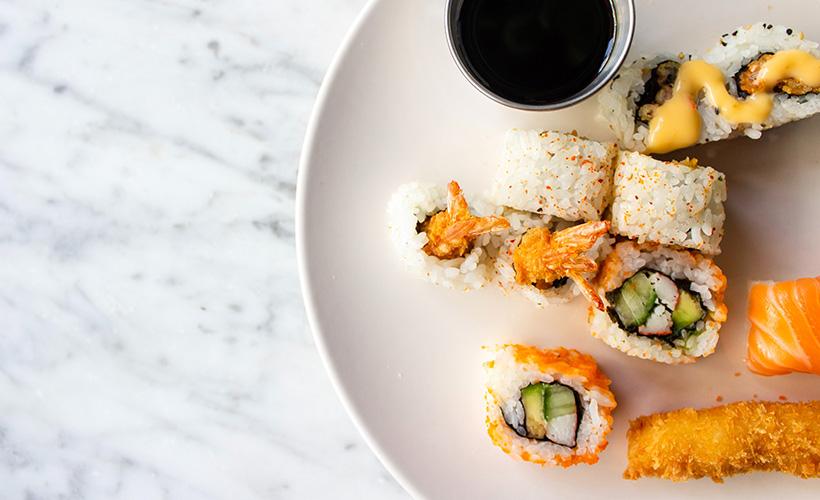

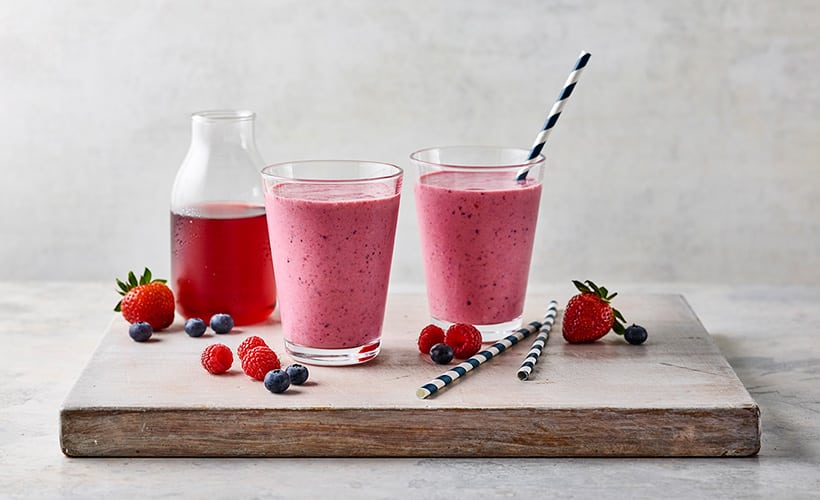
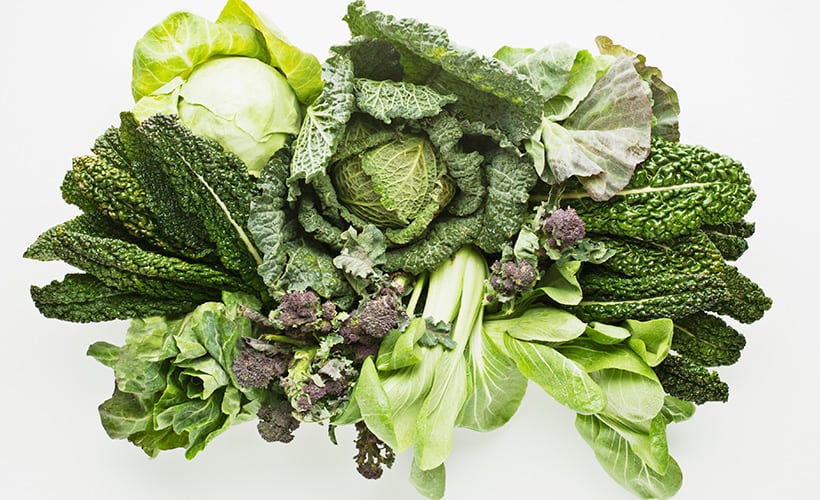
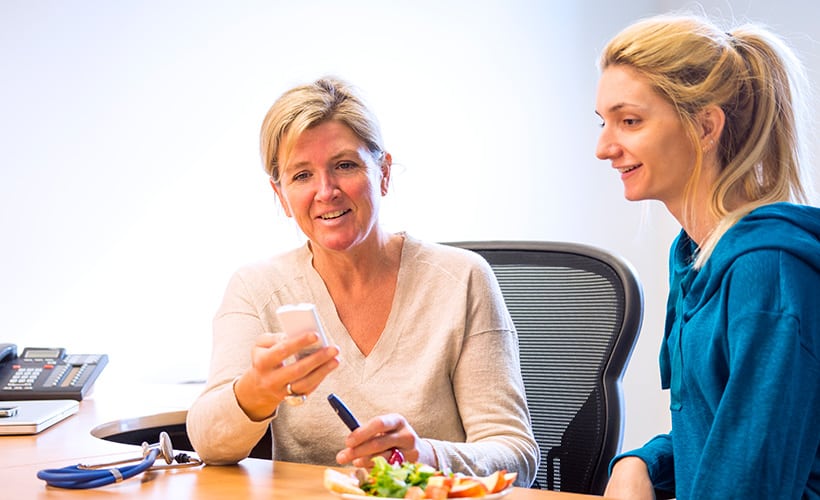
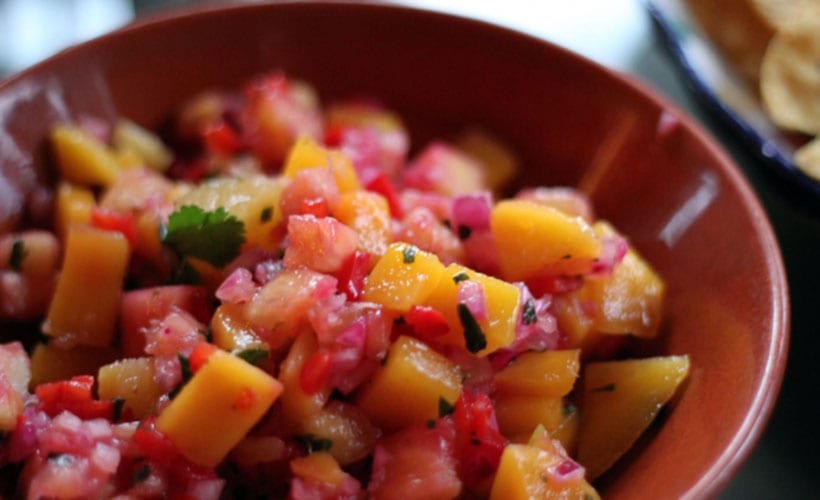



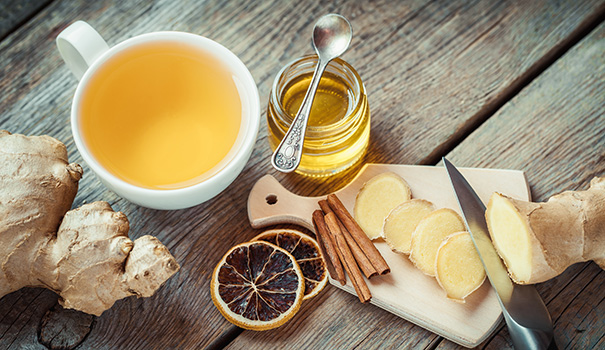

Community